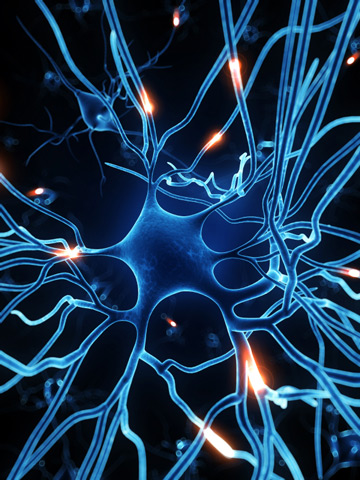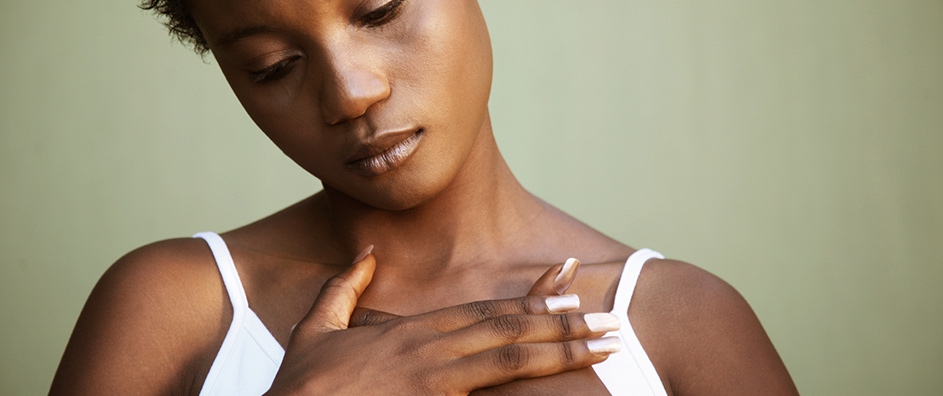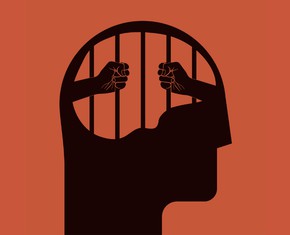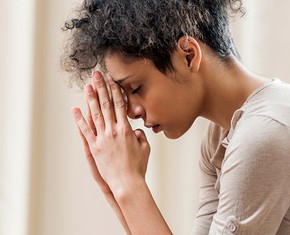The views expressed in our content reflect individual perspectives and do not represent the authoritative views of the Baha'i Faith.
…there is real communication between the hearts and minds of men. – Abdu’l-Baha, Abdu’l-Baha in London, p. 19.
If you’re reading this, you obviously have a beating heart.
In fact, why don’t you take a moment, right now, to sit back and just feel your heartbeat? Touch a finger to your wrist or your neck, and there, right beneath your skin, try to imagine the marvel of that faithful muscle. It beats constantly, without stopping, every minute of every day for your entire life. Try to truly feel your pulse and consider your heart’s job. Approximately the size of your fist—a little muscle that weighs maybe 12 ounces—it powers your entire physical existence, loyally pumping blood starting about three weeks after you begin life in your mother’s womb until your last moment on Earth.
The average human heart beats a hundred thousand times a day.
If you live a normal lifespan, your heart will faithfully beat nearly three billion times.
No human organ—with the possible exception of the brain—has a harder or more complex task.
Perhaps that explains why the ancients saw the heart as the seat of life. In the oldest human societies, the heart represented the source of empathy, emotion, consciousness, reason, will, intellect, purpose and even the mind. That expansive, warm wonder of a feeling centered in our chests when we experience love? The heart. That terrible broken pain centered in our chests when love fails us? The heart. That sympathy and connection we feel to others when their emotions peak? The heart.
But modern science has traditionally viewed our hearts as mere mechanistic pumps. Because it sends our blood coursing its way through our arteries and veins, medical science has treated the heart muscle as the most machine-like of our vital organs. Recently, though, that thinking has begun to change, as extensive scientific research and the new field of neurocardiology has increasingly shown that our hearts actually have a much larger role than simply pumping our lifeblood:
…one of the early pioneers in neurocardiology, Dr. J. Andrew Armour, introduced the concept of a functional “heart brain” in 1991. His work revealed that the heart has a complex intrinsic nervous system that is sufficiently sophisticated to qualify as a “little brain” in its own right. The heart’s brain is an intricate network of several types of neurons, neurotransmitters, proteins and support cells like those found in the brain proper. Its elaborate circuitry enables it to act independently of the cranial brain – to learn, remember, and even feel and sense. – from Neurocardiology, The Brain in the Heart, Heartmath Institute, 2015.
 So we have known, for the past quarter-century, that the human heart contains a complex network of neurons that make up an intrinsic nervous system. These neurons transmit the heart’s signals to the brain, and the two organs actually work together. In fact, scientists have discovered neural pathways that allow the heart to inhibit or stimulate the brain’s electrical activity—to actually overrule the mind.
So we have known, for the past quarter-century, that the human heart contains a complex network of neurons that make up an intrinsic nervous system. These neurons transmit the heart’s signals to the brain, and the two organs actually work together. In fact, scientists have discovered neural pathways that allow the heart to inhibit or stimulate the brain’s electrical activity—to actually overrule the mind.
Everyone who has fallen in love understands how that mechanism works.
In fact, when we say our happiest and most spiritual feelings radiate from our hearts, we may be on to something scientifically and biologically real. The heart isn’t just a cardiac pump with its own nervous system—it’s also an endocrine gland, releasing peptides that stimulate the pituitary gland, which in turn releases hormones like oxytocin, commonly referred to as the love or bonding hormone. That expansive feeling of well-being, affection and love you’re experiencing in your chest? Turns out it literally does come from your heart. Maybe the ancients were right after all.
Humans are hard-wired, in other words, for attachment, affiliation and unity. We are inherently loving beings. We seek the bonds that only love can bring. The Baha’i teachings say that every human heart innately and naturally desires connection, devotion and lasting love:
God has given man a heart and the heart must have some attachment. …nothing is completely worthy of our heart’s devotion save reality, for all else is destined to perish. Therefore the heart is never at rest and never finds real joy and happiness until it attaches itself to the eternal. How foolish the bird that builds its nest in a tree that may perish when it could build its nest in an ever-verdant garden of paradise. – Abdu’l-Baha, Divine Philosophy, pp. 136-137.
How can we find that “real joy and happiness?”
Attach not thyself to anything unless in it thou seest the reality of God–this is the first step into the court of eternity. The earth life lasts but a short time, even its benefits are transitory; that which is temporary does not deserve our heart’s attachment. – Abdu’l-Baha, Divine Philosophy, p. 135.
Since our hearts beat in our chests, and our deepest feelings emanate from our hearts, the Baha’i teachings urge us to connect those heart-felt feelings only to that which lasts.
















Comments
Sign in or create an account
Continue with Googleor